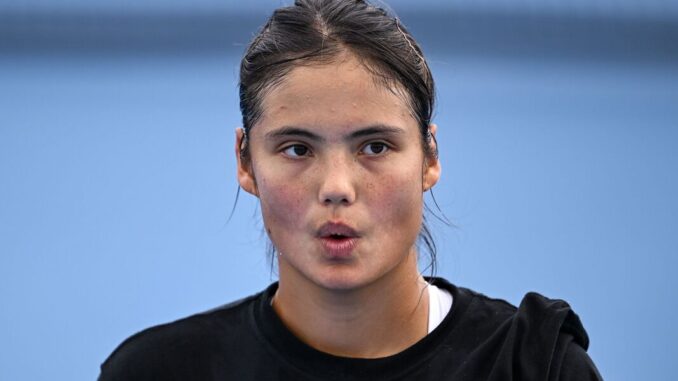
Emma Raducanu, the 2021 US Open champion, has returned to Flushing Meadows in 2025 with a renewed sense of purpose, her steely resolve forged through triumph and adversity. The 22-year-old British tennis star, who made history as the first qualifier to win a Grand Slam in the Open era, is in her best mental state since that unforgettable summer four years ago. Her journey, marked by a meteoric rise, intense scrutiny, and harrowing personal challenges, has shaped her into a player and person defined by resilience. “I am tough,” Raducanu declared, reflecting on her ability to navigate the highs of her US Open victory and the lows of a stalking ordeal that left her shaken. Her story is one of grit, growth, and an unwavering commitment to forging her own path—without the aid of therapy.
Raducanu’s 2021 US Open triumph, at just 18, was a fairy-tale moment that thrust her into global stardom. As a qualifier, she defied all odds, defeating top players to claim the title without dropping a set. The victory remains a cornerstone of her identity, but the years since have been a whirlwind of challenges, from injuries to coaching changes and relentless media scrutiny. “I was always brought up with really high standards, high expectations of myself, not much sympathy,” she said, crediting her parents’ strict upbringing for her grounded nature. Raised by parents in finance, Raducanu inherited a logical, numerical mindset, but her 2023 injury layoff proved pivotal for her personal growth. What initially seemed catastrophic became a period of self-discovery, allowing her to better understand her preferences and sharpen her decision-making.
However, Raducanu’s journey has not been without its darker moments. In 2021, a stalker was arrested and issued a five-year restraining order after stealing items from her family’s front porch, leaving her feeling unsafe in her own home. More recently, in February 2025, another terrifying incident unfolded at the Dubai Open, where a man exhibiting “fixated” behavior followed her across four tournaments—Singapore, Abu Dhabi, Doha, and Dubai. During her second-round match against Karolina Muchova, Raducanu spotted him in the stands, reducing her to tears. “I couldn’t see the ball through tears,” she recalled, describing how she hid behind the umpire’s chair, struggling to breathe. The ordeal, exacerbated by the absence of a full-time coach, left a lasting impact. “After the Dubai incident, that was probably the worst [public attention] I’ve had,” she admitted. “I definitely had a bit of a leftover lag effect. But I’ve been a lot more astute, a lot more safe.”
Since then, Raducanu has prioritized her safety, ensuring she is always accompanied. “I don’t really go out on my own as much. No solo walks. Just always having someone watching my back,” she said. Enhanced security measures at tournaments, including at Wimbledon where her Dubai stalker was blocked from purchasing tickets, have helped her regain a sense of control. Despite these precautions, Raducanu remains wary, a reflection of the toll such experiences take on high-profile athletes, particularly women in sports.
Amid these challenges, Raducanu has faced criticism for her frequent coaching changes, with detractors noting she has worked with multiple coaches since her US Open win. She counters this narrative with clarity: “I’m a lot more clear on what I do and don’t like,” she said, dismissing the notion that every coaching stint counts equally. “When you see things like: ‘Oh, Emma on her ninth coach,’ I’m like: ‘Guys, come on.’ Certain ones don’t count.” Her current team, including childhood coach Nick Cavaday and Mark Petchey, has brought stability, allowing her to focus on her game as she prepares for the 2025 US Open.
Raducanu’s approach to her mental health is equally resolute. Despite the emotional weight of her stalking ordeals and the pressure of public scrutiny, she has chosen to forgo therapy, believing it won’t suit her. “I’m someone who cares what people think and what people say,” she admitted, acknowledging the difficulty of negative headlines. Yet, she relies on her inner strength and support system to cope, aiming to inspire others facing adversity. As she steps onto the Flushing Meadows courts, Raducanu carries the lessons of her past, determined to let her tennis—and her toughness—speak for itself.
Leave a Reply